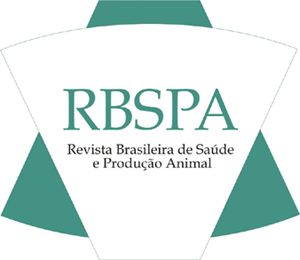SUMMARY
The objective was to evaluate the performance, quantitative and qualitative characteristics of carcases of male pigs surgically castrated and immunocastrated in finishing phase. Thirty -two crossbred animals (Landrace and Large White) with average initial weight of 92 kg were used, wich 16 males surgically castrated and 16 males immunocastrated. The animals were distributed in a randomized complete block design with two treatments, surgically castrated males or immunocastrated males, with eight replicates and two animals per experimental unit. There was no difference (P> 0.05) in the daily feed intake between castrated and immunocastrated animals. However, there was an increase (P = 0.05) in the daily gain weight of the immunocastrated males in relation to surgically castrated. It was also observed that immunocastrated pigs obtained a lower fat thickness in relation to surgically castrated pigs (P <0.05). The castration form did not influence other carcass characteristics. The qualitative characteristics were not influenced (P> 0.05) by the castration method. It is concluded that immunocastration increases the daily weight gain, reduce the backfat thickness and does not affect the qualitative characteristics of carcasses.
Keywords:
carcass characteristics; performance; immunocastration

 Performance, carcass characteristics and meat quality of pigs under surgical or immunological castration
Performance, carcass characteristics and meat quality of pigs under surgical or immunological castration